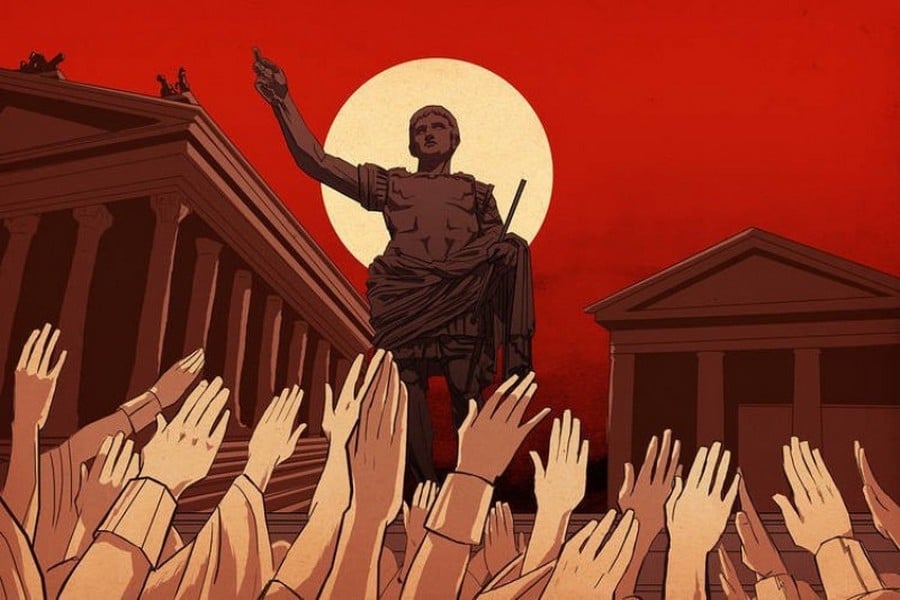Features of an Authoritarian Regime: Examples from Russia, Belarus, Azerbaijan, and Armenia
What does “autocracy” mean? In short, it is the power of one person, unchecked and unbalanced. A simple example: GG owner Khachatur Grigoryan dared to call for joining the opposition movement. Nikol Pashinyan supposedly watches that video, falls into a fit of anger, and orders: “damn this one.” Law enforcement officers then break into the GG office, conduct searches, and confiscate computers (the Investigative Committee claims the proceedings were already in question, but coincidentally, the raid occurred right after the rally). Robert Kocharyan did the same, particularly against Khachatur Sukiasyan, when he joined Levon Ter-Petrosyan’s movement in 2008.
After such actions, it becomes clear that no businessman will oppose the government if they disagree with its policies. Instead, they will try to flatter and serve the authorities as much as possible.
This is one manifestation of autocracy, an authoritarian regime. Putin, Lukashenko, and Aliyev act similarly. When they feel threatened, they order the crackdown on protesters or target businessmen who resist government actions.
Read also
A recent case in Russia: Putin deciding to “nationalize” some large enterprises—essentially seizing property from owners, transferring it to the state, and then giving it to more “suitable” owners at low prices. When Pavel Khodorkovsky, director of the Chelyabinsk Electrometallurgical Combine, tried to protest, he was accused of child abuse.
After such incidents, who would dare to complain when their property is taken away? Respect for private property is, in my opinion, one of the foundations of democracy.
Biden and Macron are similar to the authoritarian leaders mentioned above in that they also dislike criticism. However, in democracies, leaders do not have the power to instruct law enforcement officers to fulfill their personal wishes.
Are the regimes in Russia, Belarus, Azerbaijan, and Armenia similar to Stalinism and Hitlerism? To some extent, in terms of illegalities, arbitrariness, and idolizing the leader, yes. But there are more differences. Under totalitarianism, repression is massive and directed against entire groups (e.g., communists, doctors, intellectuals). In an authoritarian regime, repression is targeted. Only those who raise their voices are persecuted, while those who stay silent and support the regime face no problems.
Another fundamental difference is ideology. In the Bolshevik USSR and Nazi Germany, there was an ideology that justified suffering and oppression as a means to build a “bright future.” In the four cases under consideration, there is no such ideology. In 2018, there were attempts to create new “rituals” and “religions” in Armenia like Citizen’s Day, the Revolution Museum, and the Walking Man, but these failed without a supporting ideology.
As a result, the concept of a “ruling party” in such regimes is highly conditional. “United Russia,” “Yeni Azerbaijan,” or “Civil Contract” would collapse in the political field after the departure of their leaders.
The transition from authoritarianism to democracy is a separate topic. The general principle involves the erosion of autocracy, but there are different ways of achieving this, which I will discuss on another occasion.
Aram Abrahamyan





















































